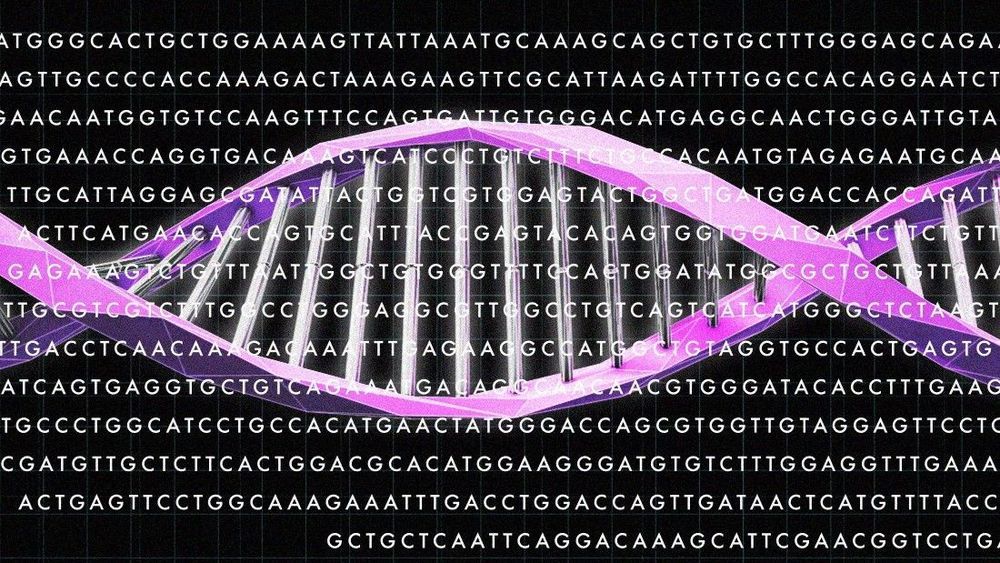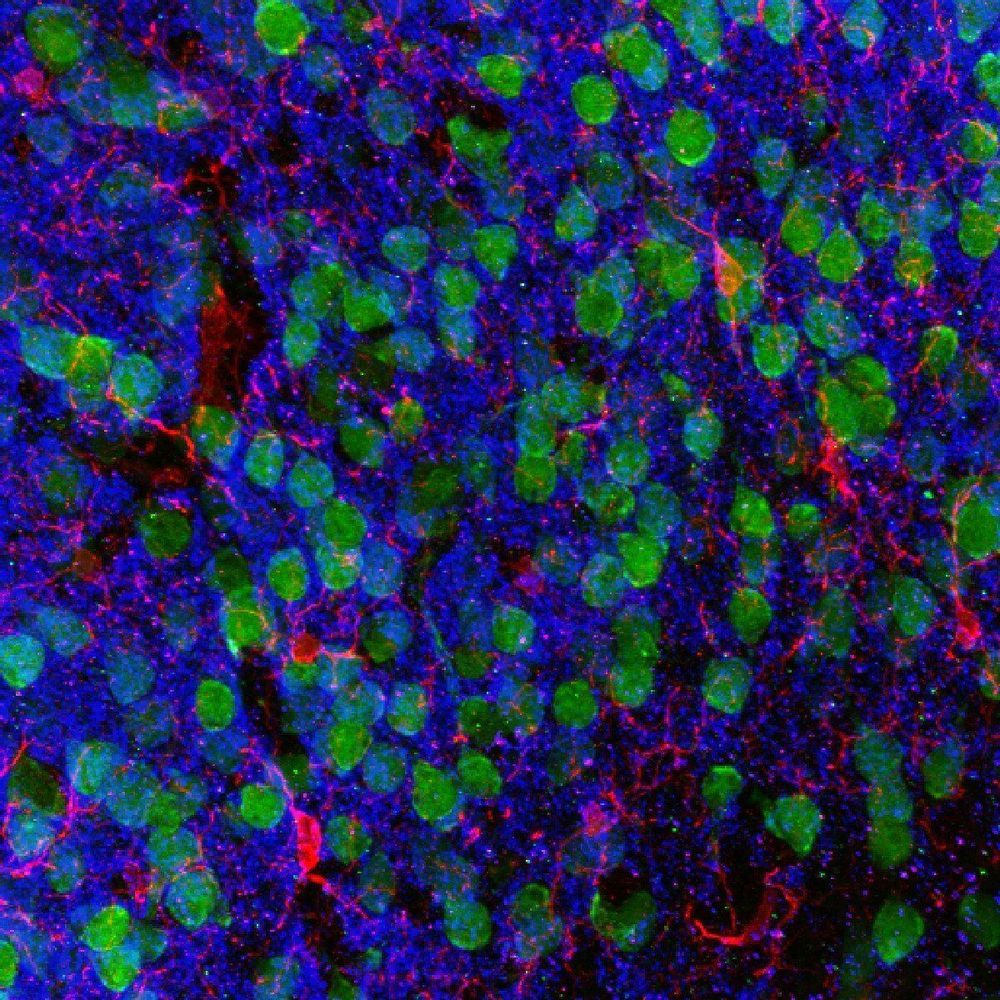Researchers in epigenetics are learning how to slow down—and even turn back—the clock that governs aging in our cells.





Scientists have developed a new gene-editing technology that could potentially correct up to 89% of genetic defects, including those that cause diseases like sickle cell anemia.
The new technique is called “prime editing,” and was developed by researchers from the Broad Institute of MIT and Harvard, who published their findings Monday in the journal Nature.
Prime editing builds on powerful CRISPR gene editing, but is more precise and versatile — it “directly writes new genetic information into a specified DNA site,” according to the paper.

By contemplating the full spectrum of scenarios of the coming technological singularity many can place their bets in favor of the Cybernetic Singularity which is a sure path to digital immortality and godhood as opposed to the AI Singularity when Homo sapiens is retired as a senescent parent. This meta-system transition from the networked Global Brain to the Gaian Mind is all about evolution of our own individual minds, it’s all about our own Self-Transcendence. https://www.ecstadelic.net/top-stories/the-ouroboros-code-bridging-advanced-science-and-transcendental-metaphysics #OuroborosCode
All AI & Cybernetics Cognitive Science Complexity Consciousness Cosmology Digital Philosophy Digital Physics Economics Emergence Environment Epigenetics Ethics Evolution Evolutionary Biology Experiential Realism Experimental Science Fermi Paradox Free Will Vs. Determinism Futurism Gaia 2.0 Global Brain Immortality Machine Learning Mathematics Memetics Mind Uploading Nanotechnology Neo Transcendentalism Neural Networks Neurophilosophy Neuroscience Phenomenology Philosophy Of Mind Physics Of Time Psychedelics Psychology Quantum Computing Quantum Gravity Quantum Physics Sci Fi Simulation Hypothesis Sociology Spirituality Technological Singularity Theology Transhumanism Virtual Reality

New cellular and molecular processes underlying communication between gut microbes and brain cells have been described for the first time by scientists at Weill Cornell Medicine and Cornell’s Ithaca campus.
Over the last two decades, scientists have observed a clear link between autoimmune disorders and a variety of psychiatric conditions. For example, people with autoimmune disorders such as inflammatory bowel disease (IBD), psoriasis and multiple sclerosis may also have depleted gut microbiota and experience anxiety, depression and mood disorders. Genetic risks for autoimmune disorders and psychiatric disorders also appear to be closely related. But precisely how gut health affects brain health has been unknown.
“Our study provides new insight into the mechanisms of how the gut and brain communicate at the molecular level,” said co-senior author Dr. David Artis, director of the Jill Roberts Institute for Research in Inflammatory Bowel Disease, director of the Friedman Center for Nutrition and Inflammation and the Michael Kors Professor of Immunology at Weill Cornell Medicine. “No one yet has understood how IBD and other chronic gastrointestinal conditions influence behavior and mental health. Our study is the beginning of a new way to understand the whole picture.”

Two major U.S. biomedical research funders plan to each put at least $100 million over 4 years toward bringing cutting-edge, gene-based treatments to a part of the world that often struggles to provide access to even basic medicines: sub-Saharan Africa. The National Institutes of Health (NIH) and the Bill & Melinda Gates Foundation today announced the unusual collaboration to launch clinical trials for gene-based cures for HIV and sickle cell disease within the region in the coming decade.
The ambitious goal is to steer clear of expensive, logistically impractical strategies that require stem cell transplantation, and instead develop simpler, affordable ways of delivering genes or gene-editing drugs that can cure these diseases. “Yes, this is audacious,” NIH Director Francis Collins said during a press teleconference this morning on the project. “But if we don’t put our best minds, resources, and visions together right now, we would not live up to our mandate to bring the best science to those who are suffering.”
After decades of work and setbacks, the traditional gene therapy approach of delivering DNA into the body to replace a defective gene or boost a protein’s production is now reaching the clinic for several diseases, including inherited blindness, neuromuscular disease, and leukemia. Animal studies and some clinical trials have suggested that two diseases prevalent in Africa, HIV and sickle cell disease, can be treated by gene therapies or newer genome-editing tools such as CRISPR.

Gene-Edited Bulls
Although GMO wheat, corn, and other crops are frequently used in the US, scientists and farmers have begun shifting their focus to a far more accurate, cheaper, and potentially acceptable way of tinkering with the genome: genetic editing.
We’ve spilled plenty of ink on the merits of CRISPR and older-generation genetic editors such as TALEN. Rather than blindly sticking additional genes into a genome, these are guided approaches that surgically snip out or insert additional genetic material, and as such, are far more precise and predictable. Rather than inserting alien genes into our foods, scientists can now cut out genes detrimental to crop growth, or mimic mutations that provide advantages—a sort of “gene therapy” for food, but for enhancement rather than treatment.

Hayley Harrison sent me this video taken-filmed by Andrés Grases and posted it to Youtube… I know for a certainty that Gene therapy will not increase Life span into 125 or beyond years due to the Animal Eukartyotic cell of the earth having a plague that infects all cells into mutation and early cell death.
This year I had the privilege to record in full Liz Parrish talk delivered at RAADfest 2019 (Revolution Against Aging and Death Festival 2019), which took place in Las Vegas, NV from 3 to 6 of October.
During her talk, Liz tells us about recent developments in the field of gene therapy and what her company BioViva is doing to benefit society by harnessing the power of it.
At the end there is also a 10 min long Q&A session, so don’t miss the video, it’s quite enlightening.
https://bioviva-science.com/
https://www.integrated-health-systems.com/

Say this about the kinds of molecular mayhem that we know underlie aging: Mechanisms like whether the ends of chromosomes fray (bad) and whether genes’ on-off status breaks down (really bad) at least sound like plausible ways to impair vital organs, from skin to brains and hearts, and produce the whole sorry mess known as aging.
On Wednesday, scientists reported a driver of aging that, in contrast, even the lead researcher diplomatically calls “counterintuitive”: neuronal activity. Aging, of course, affects the brain. But the brain seems to affect aging, too, they found: In creatures from worms to mice to people, high levels of neuronal firing spell a shorter life span. Lower levels — naturally, or due to drugs that dampen neurons’ activity — increase longevity.
The discovery4 was so surprising that it’s taken two years to be published (in Nature) because of how much additional data the outside scientists reviewing the study requested. Geneticist Bruce Yankner of Harvard Medical School, who led the research, understood their skepticism. “If you say you have a cat in your backyard, people believe you,” he said. “If you say you have a zebra, they want more evidence.”